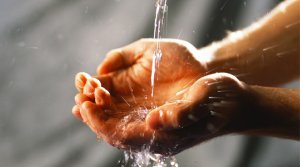
A parasite refers to a plant or an animal that lives on or in another plant or animal from a different kind and feeds from it. Usually the relationship between the parasite and the host is non-mutual. The parasite benefits from shelter and food at the expense of the host thereby weakening the activities of the host. The size of parasites vary from macroscopic parasites-those that can be seen by naked eyes to microscopic-those that are too small to be seen by naked eyes for example viruses and bacteria.
What are the common ways of parasite transmission?
Parasites can be got from:
- Sexual intercourse
- Water
- Soil
- Contact between people
Water Contamination
Water is a natural resource which is necessary for both plant and animal life. People use water for drinking, cooking and doing other chores like washing, recreation and many others. Water is also important in all industries and even in medical practice. When parasites contaminate this crucial resource, it goes without saying that illness will definitely occur.
Water contamination has become a global concern. It has been the cause of severe pain, disability to people and even death. Common global waterborne diseases include cholera, amebiasis or amoebic dysentery, schistosomiasis which results from water contamination with certain types of snails, taeniasis-the contamination of water by tape worm eggs and ascariasis-contamination of water by feces containing eggs of Ascaris lumbricoides. Guinea worm disease is also a water borne disease brought by drinking water containing water fleas that have been infected with Guinea worm larvae.
[youtube_advanced url=”https://www.youtube.com/watch?v=yEhujLgu7wM” width=”520″ controls=”alt” autohide=”no”]How can one avoid diseases related to water contamination?
v Most of these diseases are prevented by avoiding water pollution through observance of proper sanitation and hygiene.
v Keeping drinking water in a clean container which should remain closed.
v Water should be collected from hygienic sources only.
v Necessary precautions should be taken in case you are traveling to areas where water could be contaminated and unsafe for drinking. In case you have traveled to the wilderness, follow apt steps to ensure water for drinking is safe.
v Always boil water before drinking
v Globally, there have been efforts to provide clean and safe water for use through various programs and projects.
v Members of the public should be educated on maintenance of proper swimming habits when going out for recreation.
Other online sources:
http://firstaidandcprcourses.ca/?s=preventing+swimming+injuries
